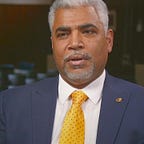Career Path After 50
The career path plays a pivotal role in our lives, whether it is a traditional job, freelance work, or a craft. At the beginning of the career, there are few options before us; as a junior actor, we accept any role offered to us. Then life leads us, charting the path we dream of. In contrast, others entirely leave themselves for the path they started with until they forget their dream and the path they hoped for. With the passage of years, we accept the reality, but we may lose a lot of fun and opportunities as well. The spirit of adventure fades, especially as the family responsibilities increase. In our Arab society, it is common to continue dreams through our children, whom we see as an extension of our life. But there is another approach to continue pursuing the career after 50 proposed by Dr Palena Neale, a writer at Harvard Business Review and Forbes, and a trainer at the United Nations System Staff College.
Although Dr Neale’s article targets women, I see it as suitable for men too, and I am fond of her approach. She advises that we should pause and reflect at the age of 50 to rearrange our papers, especially as our children mature and start their careers, so we have more time and maybe freedom of movement. She proposes four questions that will help us in drawing the road map Beyond 50.
The first question, what would your career look like if nothing was holding you back? She advises that each of you ask what you are missing in your life. In your work. What difference do you want to make? What is your dream job? What career step would you take if you knew you wouldn’t fail? What legacy do you want to leave behind you and would like people to remember you of? There may be contraindications for women mainly due to the care of children and family, but they will have more freedom and time.
The second question, what changes in mindset is needed to become what you want to be? Some do not like to seek help from others or think that it has become too much to learn. Some stereotypes about learning in certain cultures form a significant psychological and social obstacle. We straightjacket ourselves that it is not acceptable to learn something new or break the stereotypes we have embraced. The truth is there is no harm in breaking the moulds and no shame in starting or learning new things at the age of 50 or after.
The third question, how can you build your support network and benefit from it? It is imperative to sort and classify your network of relationships, and for those who desire real change, the support and help of others are indispensable. Hence, one has to determine who the people we can turn to for advice and guidance, who are the people who provide us psychological and emotional support, who are the “connected” people, who have such a vast network and can open doors for us?
And finally, what do you need to learn to bring about the career shift. Good leaders constantly learn and know what skills or information they need to get to where they want to be. — Alaa Garad Alaagarad@gmail.com
